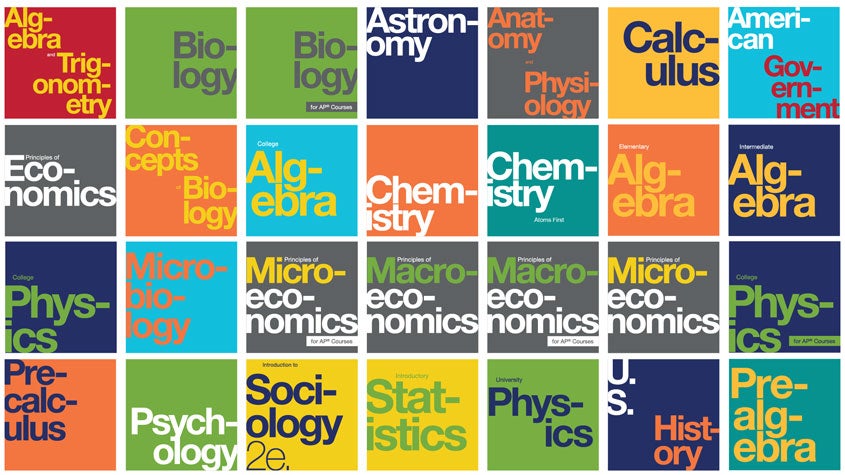In response to the global COVID-19 outbreak, OpenStax, the Rice University-based publisher of free online texts, has seen a surge in the number of new students, faculty members and schools seeking its services.
More than 27,000 new OpenStax accounts have been created since March 11. Some 1,200 faculty members new to OpenStax now have access to free faculty-only resources, such as test banks and slides. Roughly 25,800 new students can now highlight, take notes and create study guides from OpenStax books.
“This is a high number in a very short period of time,” said Daniel Williamson, managing director of OpenStax. “We’re adding more information about how instructors can quickly transition online using learning management systems.”
Faculty and students at 127 institutions in the past week have reported they have begun using OpenStax, adding to the 7,600 institutions already using one or more of its textbooks. The numbers are unprecedented for this time of year, Williamson said, adding:
“We’ve been working with our ecosystem partners and last week we announced that 28 online homework providers would make access free through the end of the term.”
“We are very efficient at what we do,” said Richard G. Baraniuk, the Victor E. Cameron Chair in Engineering at Rice, and founder and director of OpenStax, “and that permits us to handle all these new accounts. Our services are highly streamlined.”
Last year during the same week, 409 instructor accounts and 639 student accounts were created, according to Dani Nicholson, director of marketing and communications for OpenStax.
“We’ll be regularly communicating with our existing community who are teaching in-person courses and other faculty who are interested in our resources via email, our website, social media and as much one-to-one outreach as is possible,” she said.
Prior to the COVID-19 outbreak, some 3 million students were using OpenStax textbooks this academic year, at more than half the colleges and universities in the U.S.
“This week we’re exploring how to get more of our content into learning management systems like Canvas and Blackboard to help faculty get their online courses set up online even faster. We’ll host a webinar explaining how to transition to online courses. It will be recorded and posted for future use,” Nicholson said.
Since publishing its first free, peer-reviewed textbook online in 2012, OpenStax has saved some 9 million students more than $830 million worldwide and is credited with having disrupted the publishing industry into lowering overall textbook prices.

